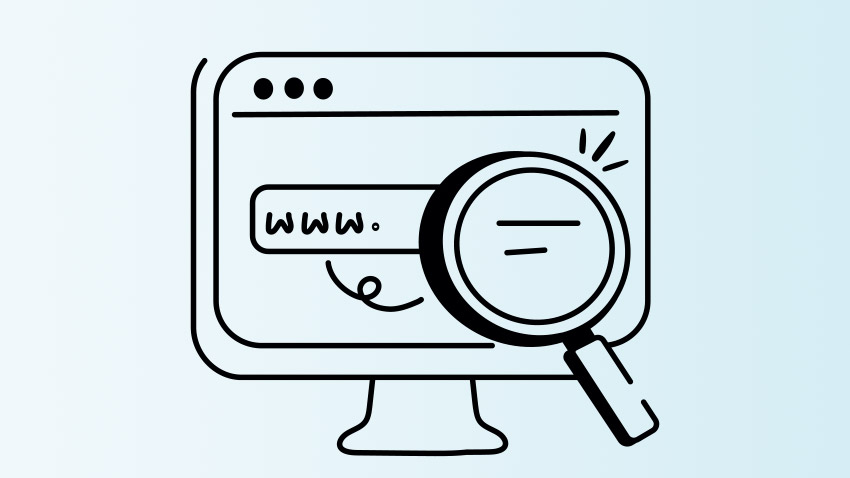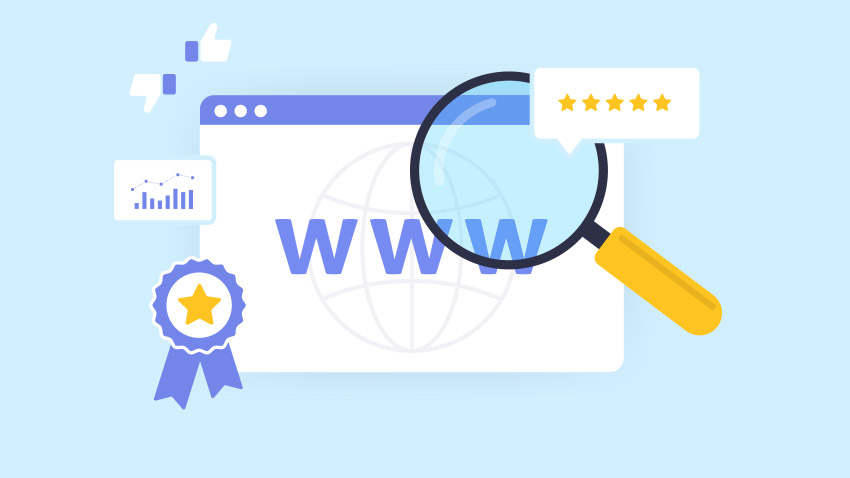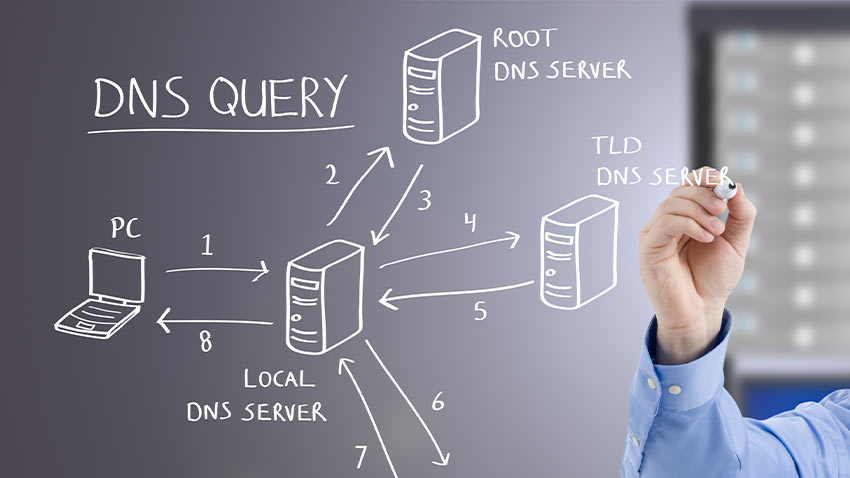A domain name is essential for a business’s online identity, serving as its digital address and helping the brand stand out. However, it’s not uncommon for companies to find out that their ideal domain name is already registered by someone else.
Acquiring an already registered domain can involve a complex and rigorous process. Fortunately, brokerage services are available to manage the entire process, from negotiation to acquisition, making it easier for businesses to secure the domain they need.
How do domain brokerage services work?
Domain brokerage services specialise in buying and selling domain names, acting as intermediaries between current domain owners and businesses seeking to acquire a previously owned domain name.
Brokers are experts in the field and can navigate the complex processes of closing a deal, ensuring that all legal aspects of domain ownership transfer are properly handled.
The procedure for obtaining registered domain names
The first step in the process is for domain brokers to have an in-depth discussion with their clients to establish and set acquisition criteria.This includes understanding the client’s budget, the purpose of the purchase, the desired timeframe, and any other relevant details. Once these criteria are agreed upon, the broker will proceed with the next steps of the acquisition process.
- Market research
Domain brokers have a deep understanding of how the domain market operates. They can leverage their networking influence and connections to access exclusive domain databases and marketplaces to find a suitable domain name. For instance, they are well-versed in conducting WHOIS lookups, which allows them to compile a list of the most appropriate domains for their clients.
- Assessing domain value
Domain names are primarily valued based on several factors such as length, domain type, brandability, demand, trend, age, SEO potential, and keywords. For example, top-level domains (TLDs) such as .com, .org, .net, or new extensions like .cloud and .shop, or even ccTLDs (.de or .co.uk) tend to have higher resale value than others.
The law of supply and demand also plays an important role in determining domain value. For example, brands that are eager to acquire a commercial domain that has two to three letters may be willing to pay a premium, while domain owners who are open to selling might accept a lower bid. Domain brokers must consider various evaluation factors to ensure their clients get the best deal at a premium.
- Researching domain ownership and making contact
Tracking down the owner of a domain is much like detective work, requiring both patience and the right tools. Domain brokers often rely on a multitude of resources to identify the current owner of a desired domain. Once they’ve pinpointed the owner, the next step is reaching out to express interest in the domain’s availability and exploring the possibility of a purchase.
- Negotiating the terms of the contract
Once the domain owner expresses a willingness to sell, the negotiation process begins. This stage often includes establishing specific terms, with both parties exchanging offers and counteroffers. Throughout the negotiation, domain brokers frequently consult with their clients, providing updates and reviewing any necessary information. When a mutually agreeable price is reached, both parties typically move forward by signing a Letter of Intent (LOI), marking the first step toward finalising the purchase agreement.
- Purchase processes and transfer of ownership
To ensure a transparent and secure transaction, domain brokers often use escrow services. Their primary goal is to facilitate a smooth and successful payment process. Once payment is secured, the focus shifts to transferring the domain ownership to the buyer. The broker manages all technical aspects of the transfer, coordinating each step to ensure the process is completed seamlessly.
Benefits of involving domain brokerage services
Securing a domain name can be a complex and daunting task for business owners to tackle on their own. Domain brokers bring valuable expertise and experience to the challenging process of acquiring an already-registered domain.
Here are some key reasons why businesses should consider working with domain brokers:
- Market intelligence
Domain brokers have both fundamental and advanced knowledge of the domain industry. With access to exclusive resources and connections to key databases, they can efficiently navigate the market and help secure a deal in a timely manner.
- Anonymous acquisition and regulatory compliance
For various reasons, some brand owners prefer to remain anonymous to the public and competitors. These reasons may include protecting personal privacy, maintaining business confidentiality, safeguarding against targeted attacks and preventing cybersquatting
In such cases, a domain broker ensures the acquisition process complies with all relevant legal frameworks. For instance, under the new General Data Protection Regulation (GDPR) enforced by the European Union, there are strict rules governing data privacy in domain registrations.
Domain brokers must consider and review the GDPR, as well as country-specific laws and regulations set by the Internet Corporation for Assigned Names and Numbers (ICANN), and other privacy laws, ensuring that their clients are fully compliant.
- Expert negotiation skills
Experienced domain brokers understand the psychology of negotiation. They can use strategic tactics to acquire already-registered domains without yielding to pressure. By providing objective guidance throughout the deal, they negotiate strictly on solid valuations, ensuring they stay within their client’s budgets.
In conclusion
Businesses looking to purchase an already-registered domain should strongly consider leveraging the expertise of domain brokerage services. This is so important because domain brokers bring valuable connections and a strategic approach to completing domain acquisition deals. They understand the rules and legal requirements necessary to navigate the complex landscape of obtaining domain names.











